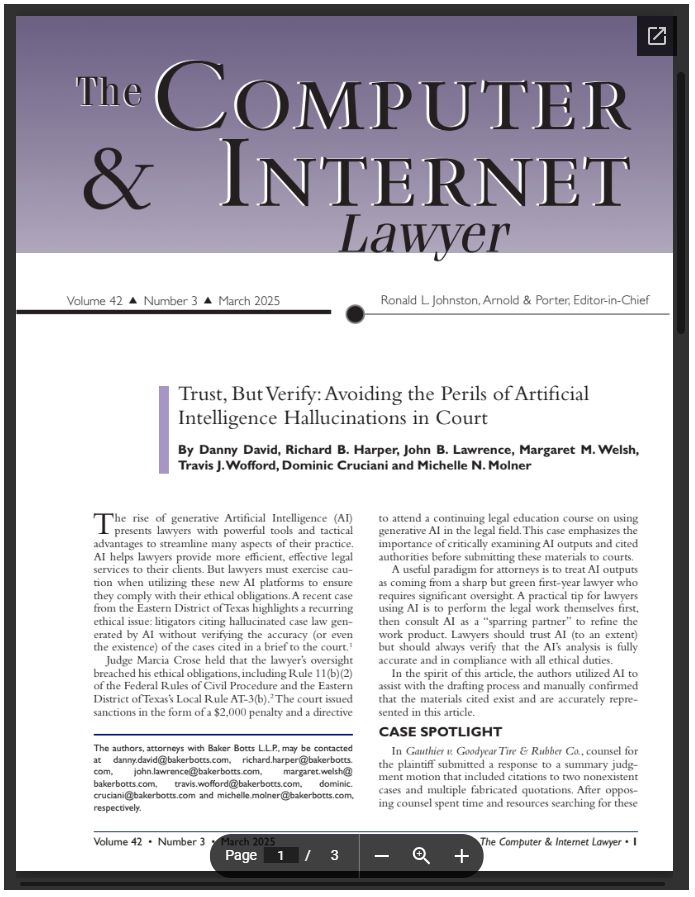- in South America
- within Insolvency/Bankruptcy/Re-Structuring topic(s)
The rise of generative Artificial Intelligence (AI) presents lawyers with powerful tools and tactical advantages to streamline many aspects of their practice. AI helps lawyers provide more efficient, effective legal services to their clients. But lawyers must exercise caution when utilizing these new AI platforms to ensure they comply with their ethical obligations. A recent case from the Eastern District of Texas highlights a recurring ethical issue: litigators citing hallucinated case law generated by AI without verifying the accuracy (or even the existence) of the cases cited in a brief to the Court.
Read the complete article in the March issue of The Computer & Internet Lawyer.
The content of this article is intended to provide a general guide to the subject matter. Specialist advice should be sought about your specific circumstances.








